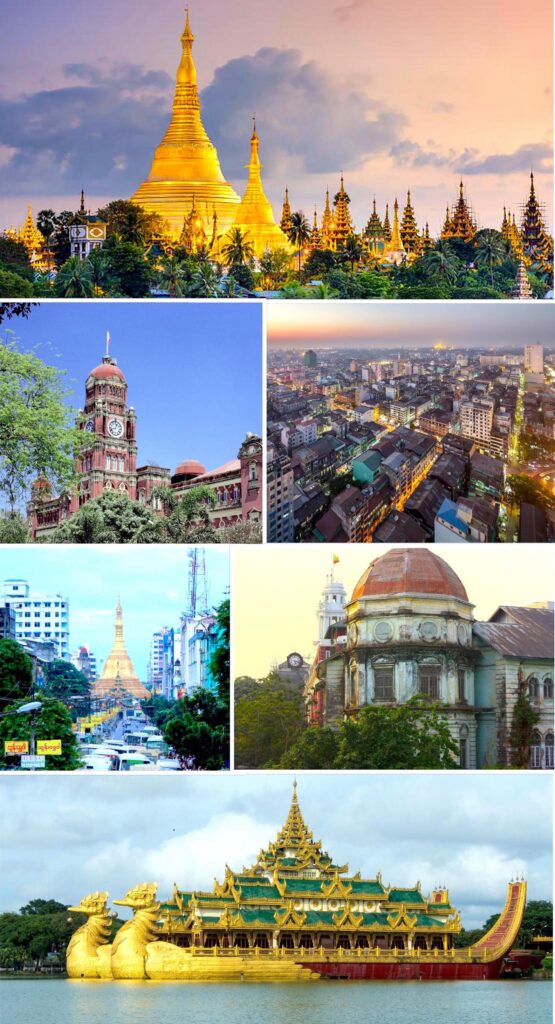From Yangon to the Borderlands: Independent Media on Myanmar’s Post-Coup Front Line
In the aftermath of Myanmar’s military coup in February 2021, the landscape of media freedom has undergone a dramatic transformation. With state-controlled narratives dominating the airwaves and a crackdown on dissenting voices, independent journalists have faced increasing peril in their quest to inform the public. Amidst this chaos, the International Crisis Group sheds light on the resilience and adaptability of independent media operating in the country’s borderlands. This article explores the vital role that these journalists play in a fractured society, revealing the challenges they navigate while striving to uphold the principles of truth and transparency in an environment fraught with danger and censorship. As Myanmar grapples with ongoing violence and instability, the stakes have never been higher for those committed to bringing unbiased reporting to the forefront of a nation in turmoil.
Exploring the Role of Independent Media in Shaping Myanmar’s Resistance Narrative
The independent media landscape in Myanmar has undergone a profound transformation since the military coup in February 2021, becoming a crucial channel for disseminating information and fostering resilience among the populace. Journalists and outlets operating under extreme pressure have shifted their focus to highlight the voices of resistance against the military junta, providing a platform for grassroots movements and marginalized communities. Through in-depth reporting and investigative journalism, these media entities have played a pivotal role in amplifying human rights abuses, documenting acts of civil disobedience, and portraying the ongoing struggle for democracy in a way that global audiences can engage with.
Moreover, independent media’s adaptability to new technologies has facilitated the rapid spread of information, even in the face of government censorship. Utilizing social media platforms and encrypted messaging apps, journalists have circumvented traditional barriers to reporting, ensuring that critical updates reach citizens both within the country and in exile. This has fostered a culture of solidarity and shared narratives across different regions, including urban centers like Yangon and rural borderlands. To better illustrate the impact of independent media, consider the following table, which highlights some key outlets and their contributions:
| Media Outlet | Focus Area | Impact |
|---|---|---|
| Myanmar Now | Investigative Journalism | Uncovering military abuses |
| The Irrawaddy | Political Reporting | Fostering democratic discourse |
| Mizzima | Multimedia Content | Raising awareness internationally |
This fertile ground for resistance narratives nurtured by independent media fosters an informed citizenry, which is essential for the rebirth of Myanmar’s democracy. As these voices persist in the face of adversity, they not only document the current socio-political landscape but also help to construct a collective memory that could shape the future of the nation in the post-coup era.
Challenges Faced by Journalists on the Front Line of Post-Coup Myanmar
Since the military coup in February 2021, Myanmar’s journalists have found themselves operating in an increasingly perilous environment, with state reprisals intensifying against independent media. Many have faced harassment, arrests, and surveillance as they attempt to report on the realities of life under military rule. The situation has led to an atmosphere where fear permeates everyday reporting, forcing many to adopt self-censorship to protect themselves and their sources. The lack of physical security, combined with an intensified crackdown on dissent, creates significant challenges in gathering and disseminating truthful information.
Moreover, the digital landscape in Myanmar has transformed into a battleground for information, as the military employs sophisticated tactics to disrupt online journalism. Journalists are confronting issues such as internet blackouts, cyberattacks, and propaganda campaigns aimed at discrediting independent reports. The precarious access to reliable communication channels complicates their ability to share on-ground realities. In this challenging climate, journalists are not only fighting to convey the truth but are also defending their right to exist in a society that increasingly views them as threats. This juncture highlights the resilience and commitment of the media in Myanmar, even as they navigate the volatile crossroads of governance and freedom of expression.
Strategic Recommendations for Supporting Media Freedom and Resilience in Myanmar
To bolster media freedom and enhance the resilience of independent journalism in Myanmar, various strategic actions must be prioritized. First, fostering an environment that encourages safe reporting can be achieved through the establishment of resource centers that provide journalists with legal support and training on digital security. By equipping reporters with the necessary tools to navigate threats and censorship, these initiatives can mitigate the risks faced in the field. Additionally, strengthening partnerships with international media organizations can amplify local voices, enabling them to reach global audiences, while also facilitating knowledge exchange and capacity building.
Furthermore, advocating for international sanctions against entities contributing to media suppression should be a key component of the strategy. These measures can include:
- Targeted economic sanctions against military-affiliated businesses involved in media censorship.
- Support for asylum programs aimed at journalists risking their lives.
- Funding for independent media outlets to counterbalance the government’s narrative and provide alternative perspectives.
By implementing these recommendations, stakeholders can create a more supportive framework for independent media, essential for a thriving democratic society.
To Wrap It Up
As Myanmar grapples with the aftermath of the military coup, independent media outlets have emerged as crucial players in the fight for transparency and accountability in the region. From the urban centers of Yangon to the more volatile borderlands, these brave journalists provide a vital lifeline to information, documenting human rights abuses and amplifying the voices of those often silenced. Despite the growing threats they face, their commitment to truth stands as a beacon of hope amidst the turmoil. Moving forward, the resilience of independent media will be key in shaping a more informed and engaged public, as well as playing a fundamental role in the international community’s response to the ongoing crisis. As the situation evolves, the importance of supporting these media initiatives cannot be overstated, for they are not only chroniclers of a turbulent chapter in Myanmar’s history but also catalysts for change.
